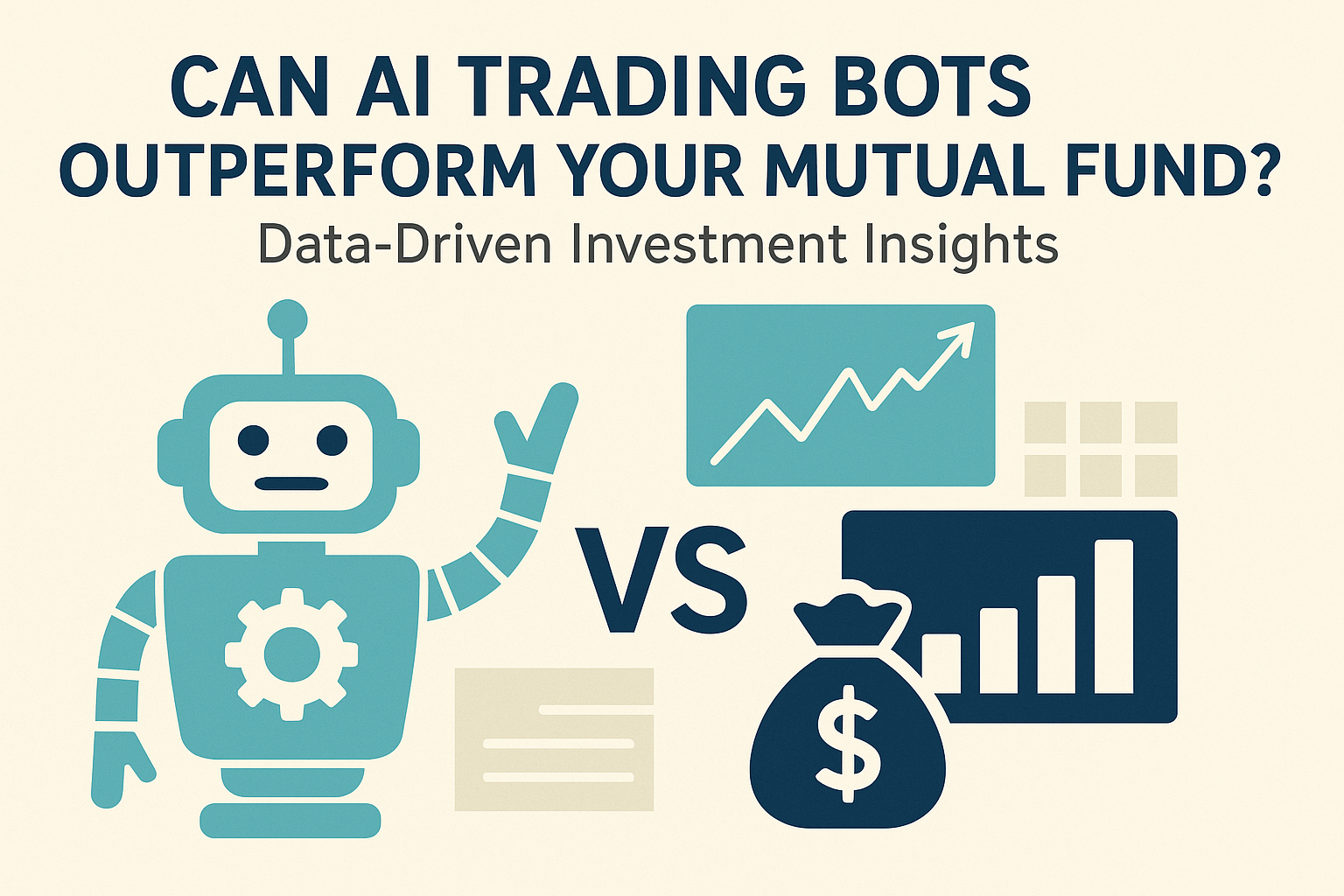Can AI Trading Bots Outperform Your Mutual Fund? | Data-Driven Investment Insights
In the ever-evolving landscape of investment strategies, the question arises: Can AI trading bots outperform traditional mutual funds? With advancements in artificial intelligence and machine learning, AI-driven investment platforms are gaining traction. This article delves into the comparative performance of AI trading bots and mutual funds, providing insights to help you make informed investment decisions.
Understanding AI Trading Bots and Mutual Funds
AI trading bots are automated systems that utilize algorithms and machine learning to execute trades based on data analysis. These bots can process vast amounts of information at high speeds, identifying patterns and making decisions without human intervention. In contrast, mutual funds are managed by professional fund managers who make investment decisions based on market analysis and research.
While mutual funds offer diversification and professional management, they may be subject to human biases and slower reaction times to market changes. AI trading bots, on the other hand, can operate continuously, adapting to market conditions in real-time. investopedia.com
Performance Comparison: AI Trading Bots vs. Mutual Funds
Recent studies have shown that AI-powered funds can outperform traditional mutual funds. For instance, a study published in Finance Research Letters found that AI-powered mutual funds significantly outperformed their human-managed counterparts by 5.8% annually on a net basis. This outperformance is attributed to superior stock selection capabilities and lower turnover ratios, leading to reduced transaction costs. thetimes.co.uk+4evidenceinvestor.com+4sciencedirect.com+4sciencedirect.com+1evidenceinvestor.com+1
Moreover, AI-enhanced ETFs have demonstrated impressive returns. Data indicates that over a five-year period, AI-driven ETFs outperformed the S&P 500 by an average of 5.91%, highlighting the potential of AI in generating higher returns. zipdo.co+3analystanswers.com+3businessinsider.com+3
However, it’s important to note that while AI trading bots can offer higher returns, they also come with risks. The reliance on algorithms means that unforeseen market events or data anomalies can lead to significant losses. Therefore, understanding the underlying mechanisms and risk management strategies of AI trading bots is crucial. combiz.org
Considerations for Investors
When deciding between AI trading bots and mutual funds, consider the following factors:
- Risk Tolerance: AI trading bots can be more volatile due to their rapid trading strategies. If you have a lower risk tolerance, traditional mutual funds might be more suitable.
- Investment Goals: If you’re seeking higher returns and are comfortable with the associated risks, AI trading bots could be beneficial. For long-term, stable growth, mutual funds may be preferable.
- Fees and Costs: AI trading platforms may have different fee structures compared to mutual funds. Evaluate the costs involved to ensure they align with your investment strategy.
- Transparency and Control: Mutual funds are more focussed on fundamentals regarding investment decisions. With AI trading bots, the decision-making process can be opaque, making it harder to understand the rationale behind certain trades.
Conclusion
AI trading bots have shown the potential to outperform traditional mutual funds, offering higher returns through advanced data analysis and rapid execution. However, they also introduce new risks and complexities. As an investor, it’s essential to assess your risk tolerance, investment goals, and understanding of these technologies before making a decision. Consulting with financial advisors and conducting thorough research can further aid in making an informed choice between AI trading bots and mutual funds. rkfs.org
Get Started with your Stock Investments today with MINTALPHAA
Get deeper insights into the crypto market’s weekly trends discussed on our Spotify podcast.
Note: This article is for informational purposes only and does not constitute financial advice. Always consult with a financial advisor before making investment decisions.
